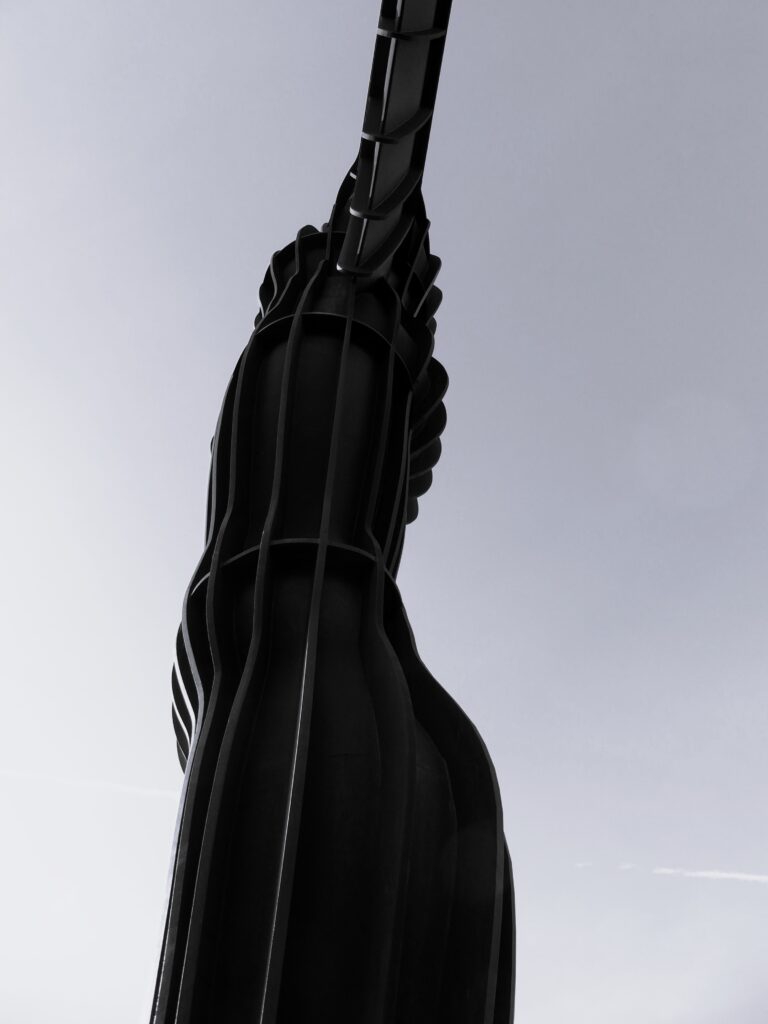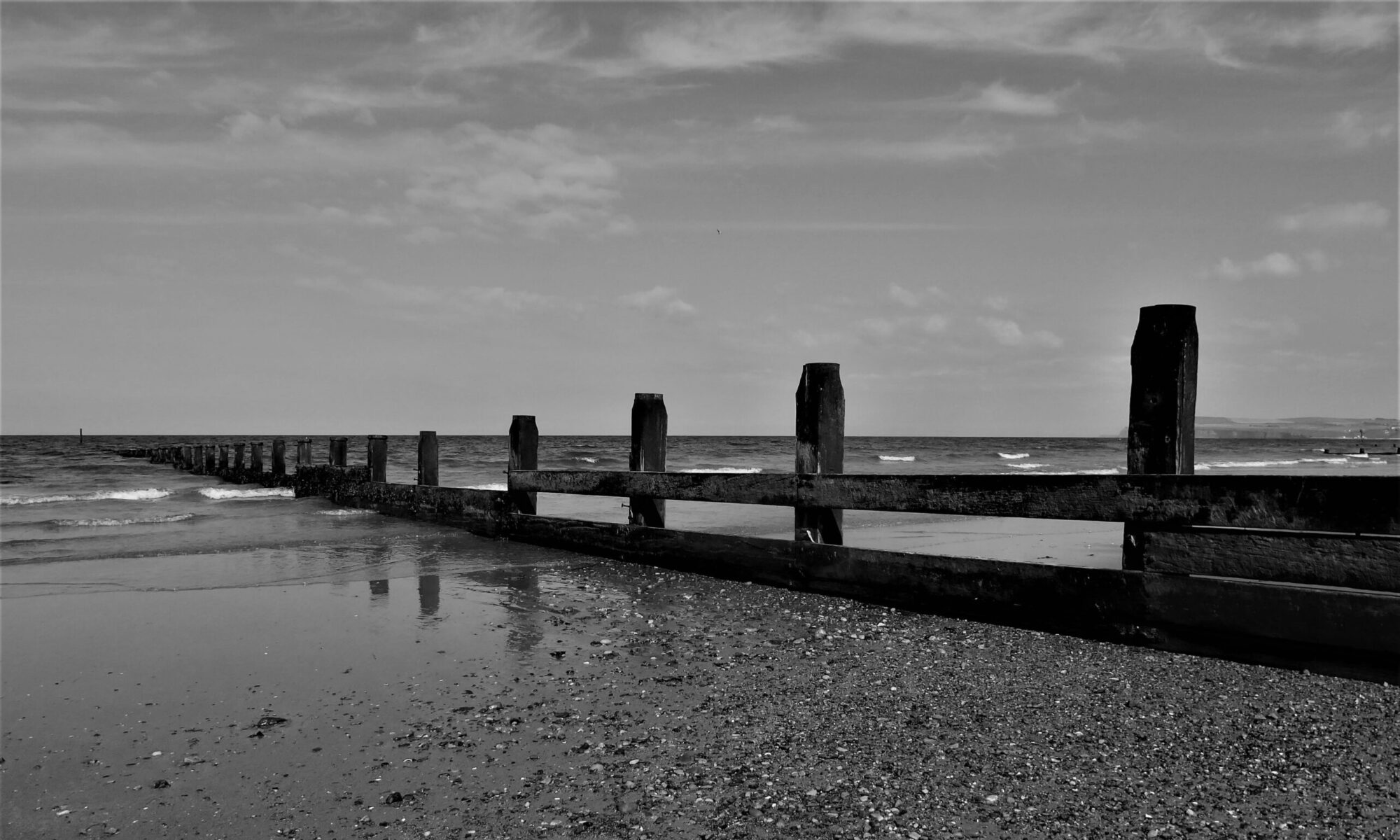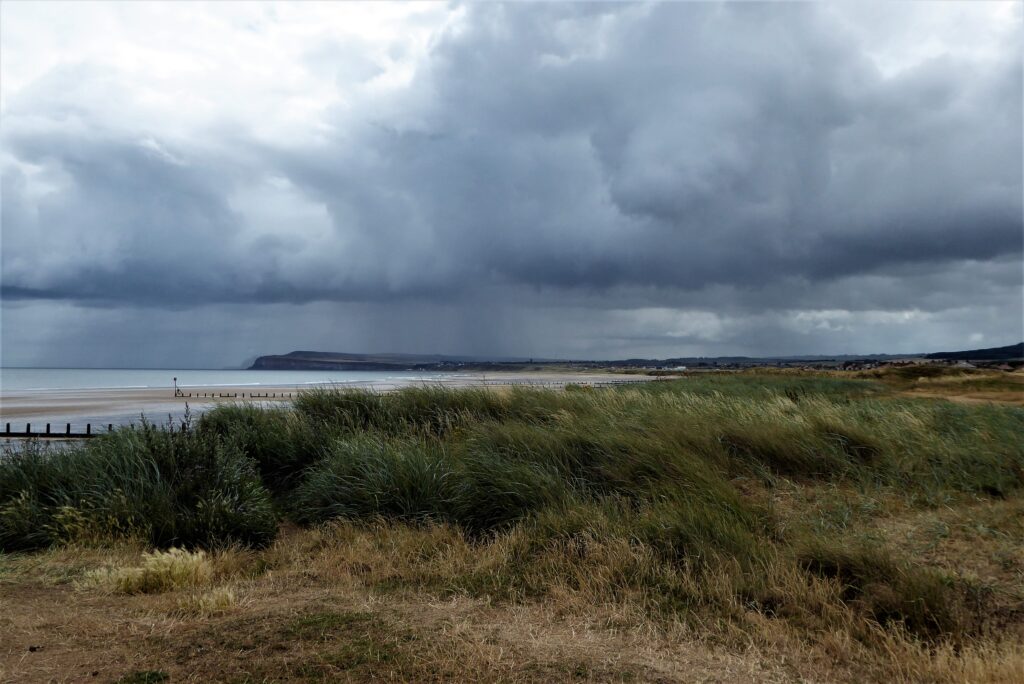
Yesterday I received an email from Liz Shaw, who had heard the Radio 4 broadcast about our project on the Today programme. Elizabeth is a member of the Watford Writers’ Group and had been set the task to write a piece that was inspired by an artwork. Based on my interview, Liz wrote a beautiful piece which constitutes its own eloquent and moving response to The Angel.
Liz has kindly given me permission to include her writing on the blog, and you can read it below. I hope you enjoy it as much as I did.
Angel of the North
My arms are not raised up high in anger or in defiance. They do not bend and curve to cherish and protect. Nor do they hang in despair or in defeat. They stretch out wide, wider than I am tall, parallel to the earth. My arms are winged and spread to catch the wind. I am genderless and ageless. My face is emotionless and featureless. I was created blind to your existence, deaf to your voices. I watch unheeding as your traffic and trains stream below me.
Born in a blast furnace, forged in steel, I am municipal, magnificent, agnostic, secular, classless.
And yet. And yet. You leave your hopes, fears and prayers at my feet. Slips of paper sealed and curled within my iron ribs. Nearby trees hang heavy with your memorials, charms, ribbons and fairy lights. I have become a road-side shrine, an altar, a minaret, a bridge of sighs, a wailing wall.
You conceived me, you built me, you know this. So why do you believe that I have power over your fate? Do you hope to see me spark to life and stride the fields like a modern-day Prometheus, take flight to intercede with the Gods on your behalf?
My feet are planted in a landscape once blighted by industry. I feel the souls of the colliers who mined the seams beneath me. I feel their heaving lungs and their black coal-ingrained scars. Your messages seep into me with their raw emotions of hope, grief, love and hate.
And now the sounds of my structure will be added to your voices. Your memories and stories will be forever entwined with the rush of the wind as it wails around me. The eerie groans of my metal body expanding and contracting with the summer heat and the winter ice will be added to birdsong and the sound of children playing at my feet. The gentle rustle of the leaves will blend with the tinkle of your votive offerings. A soundscape will be created of what I have come to mean to you.
Are you hoping to wear away at my cold rusting heart? If your wishes came true, if you were wealthy, loved, cured, avenged, then what? The deep scars of your life will fade in time as will your life itself. I cannot bring them back, the people who you mourn and grieve. They will not return from death.
Better to stand tall and strong with arms wide open to accept your future, to feel your feet firmly planted in history, to gaze ahead to the distant twinkling northern city lights.
Liz Shaw
November 2023

